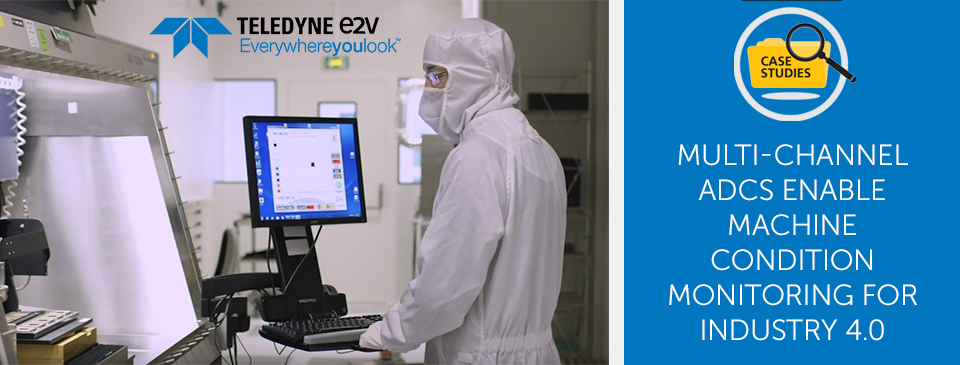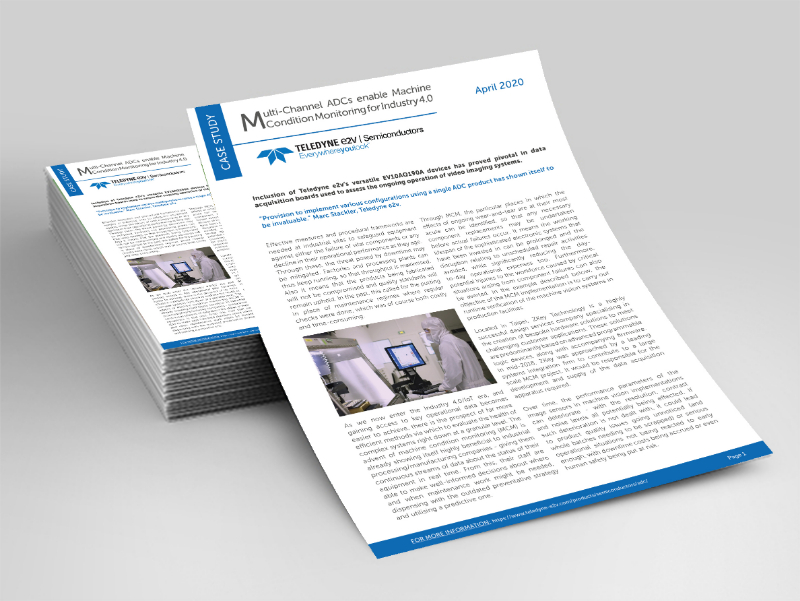
Inclusion of Teledyne e2v’s versatile EV10AQ190A devices has proved pivotal in data acquisition boards used to assess the ongoing operation of video imaging systems.
“Provision to implement various configurations using a single ADC product has shown itself to be invaluable.” Marc Stackler, Teledyne e2v.

Effective measures and procedural frameworks are needed at industrial sites to safeguard equipment against either the failure of vital components or any decline in their operational performance as they age. Through these, the threat posed by downtime may be mitigated. Factories and processing plants can thus keep running, so that throughput is maximised. Also it means that the products being fabricated will not be compromised and quality standards will remain upheld. In the past, this called for the putting in place of maintenance regimes where regular checks were done, which was of course both costly and time-consuming.
As we now enter the Industry 4.0/IoT era, and gaining access to key operational data becomes easier to achieve, there is the prospect of far more efficient methods via which to evaluate the health of complex systems right down at a granular level. The advent of machine condition monitoring (MCM) is already showing itself highly beneficial to industrial processing/manufacturing companies – giving them continuous streams of data about the status of their equipment in real time. From this, their staff are able to make well-informed decisions about where and when maintenance work might be needed, dispensing with the outdated preventative strategy and utilising a predictive one.
Through MCM, the particular places in which the effects of ongoing wear-and-tear are at their most acute can be identified, so that any necessary component replacements may be undertaken before actual failures occur. It means the working lifespan of the sophisticated electronic systems that have been invested in can be prolonged and the disruption relating to unscheduled repair activities avoided, while significantly reducing the day-to-day operational expenses too. Furthermore, potential injuries to the workforce caused by critical situations arising from component failures can also be averted. In the example described below, the objective of the MCM implementation is to carry out runtime verification of the machine vision systems in production facilities.
Located in Taipei, ZKey Technology is a highly successful design services company specialising in the creation of bespoke hardware solutions to meet challenging customer applications. These solutions are predominantly based on advanced programmable logic devices, along with accompanying firmware. In mid-2018, ZKey was approached by a leading systems integration firm to contribute to a large scale MCM project. It would be responsible for the development and supply of the data acquisition apparatus required.
Over time, the performance parameters of the image sensors in machine vision implementations can deteriorate – with the resolution, contrast and noise levels all potentially being effected. If such deterioration is not dealt with, it could lead to product quality issues going unnoticed (and whole batches needing to be scrapped) or serious operational situations not being reacted to early enough, with downtime costs being accrued or even human safety being put at risk.
If you wish to read more, please click on the following link to download our case study.